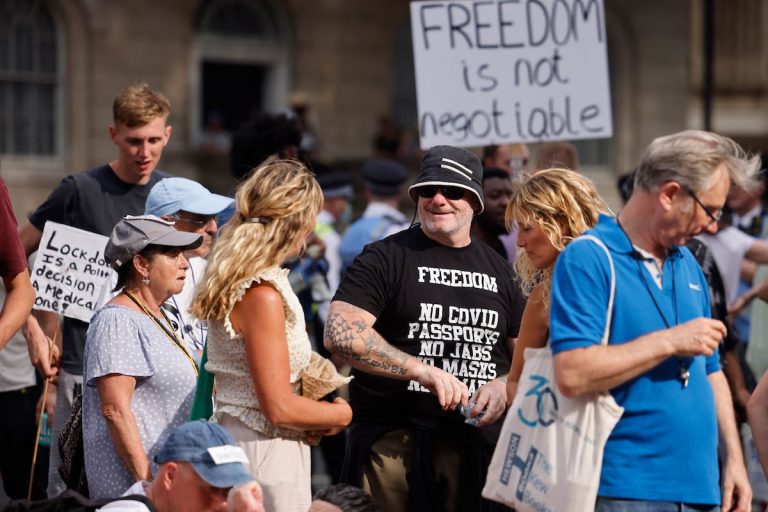The British government recently announced that it would exempt business elites from Coronavirus Disease 2019 (COVID-19) quarantine for certain situations. In an updated guidance document on international travel published on June 29, the government stated that senior executives of businesses are eligible for exemption if they are undertaking activities likely resulting in “significant economic benefit” to the UK.
“This exemption is designed to enable activity that creates and preserves UK jobs and investment while taking steps to ensure public health risks are minimized,” the guidance stated. The exemption applies to two types of senior executives: (1) those from multinational companies based overseas, visiting their UK branches or subsidiaries, and (2) those from overseas companies wishing to engage in economic activity in the UK either by investing in a UK-based business or by establishing a new business in the country.
Executives will have to self-isolate when not engaging in activities that qualify for the exemption. They will also have to notify government authorities of their intention to use the exemption prior to travel, and must obtain written approval. If the business activity can be performed remotely, the executive will be denied permission.
In order to be classified as bringing “significant economic benefit,” the activity should have a 50 percent or greater chance of preserving or creating a minimum of 500 jobs based in the UK. The business deal should either benefit a company based in the UK that already employs 500 workers, or a new UK business set up within two years of the executive’s arrival in the country.
Criticism
Labor Member of Parliament (MP) Angela Rayner said in a tweet that the government has created one rule for those at the top and another for everyone else. “This makes a total mockery of the sacrifices of the British people during this pandemic and this double standard is an insult to frontline workers that the British people will rightly be disgusted by.”
Success
You are now signed up for our newsletter
Success
Check your email to complete sign up
Mark Littlewood, head of the Institute of Economic Affairs, said that such “absurd and bizarre” laws further prove the need to swiftly end all lockdown restrictions.
“This looks suspiciously like a one rule for the rich and tighter, harsher rules for everyone else. Either that or it’s a recipe for bureaucratic cronyism… Who in Whitehall is going to determine whether a business trip is likely to lead to the creation or protection of 500 UK-based jobs within two years?” Littlewood stated, according to The Sun.
The UK government has previously been criticized for giving special exemptions to the wealthy and influential. Between March 17 and April 14 last year, more than 1,800 private planes landed in the UK at a time when the government had imposed a national lockdown and forced ordinary citizens to remain at home.
The administration is also being criticized for caving in under the pressure of the Union of European Football Associations (UEFA), allowing thousands of football VIPs to attend the finals of the Euro 2020 tournament without undergoing quarantine. The game is scheduled to be hosted at the Wembley Stadium in London on July 11.
Lockdowns and protests
The UK lockdown was originally scheduled to end on June 21. However, the date was delayed by four weeks to July 19 due to a rise in COVID-19 cases.
In the month between May 21 and June 21, the number of daily new confirmed COVID-19 infections per million rose from 37.18 to 154.20, an increase of 314 percent. Daily confirmed new deaths per million has been below 0.4 since May 5, a far cry from the peak of 26.90 on January 20. The UK has the seventh-highest total number of cases in the world at 4.82 million, and has reported 128,162 deaths.
In a recent speech to MPs, newly promoted Health Secretary Sajid Javid vowed to end the lockdown on July 19, and said that the date would be the beginning of an “exciting new journey” for the country.
“Make no mistake, the restrictions on our freedoms must come to an end. We owe it to the British people… not to wait a moment longer than we need to. With the numbers heading in the right direction… July 19 remains our target date… The Prime Minister has said it is our terminus date, for me, July 19 is not only the end of the line but the start of an exciting new journey for our country,” Javid said.
When asked for confirmation about whether July 19 would be the end of all COVID-19 restrictions, Javid refused to give a definite answer, stating that Step Four of the planned easing of restrictions would “commence” on that date.
In June, there were clashes between police and citizens participating in anti-lockdown protests. In one incident in central London, three police officers were injured and 14 people were arrested.
Experts have warned that lockdowns could be creating far greater negative consequences for society than positive effects. Dr. Jay Bhattacharya, a professor at Stanford University Medical University, called the COVID-19 lockdowns the “biggest public health mistake” in an interview with Daily Clout. He is the author of the “Great Barrington Declaration,” which calls for ending lockdown restrictions.
“We will be counting the catastrophic health and psychological harms, imposed on nearly every poor person on the face of the earth, for a generation… At the same time, they have not served to control the epidemic in the places where they have been most vigorously imposed. In the US, they have – at best – protected the ‘non-essential’ class from COVID, while exposing the essential working class to the disease,” Bhattacharya said.
With reporting by Arvind Datta.

















